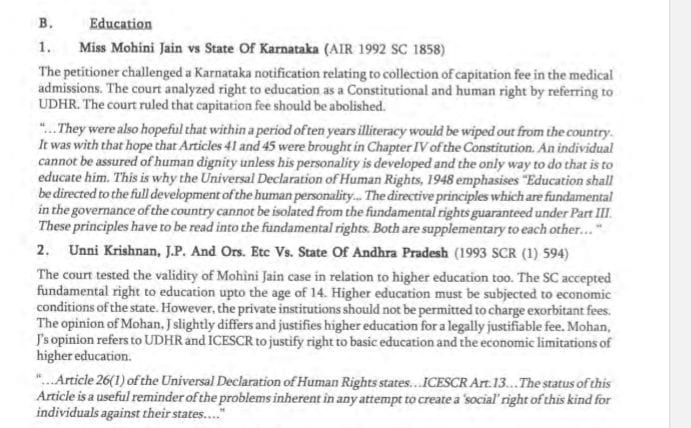What are the implications of the cases Miss Mohini Jain vs State Of Karnataka and Unni Krishnan, J.P. And Ors. Etc Vs. State Of Andhra Pradesh on the right to education in India?

Understand the Problem
The question appears to discuss two important legal cases related to education law in India, specifically focusing on the Constitutional right to education and the implications of such rights as interpreted by the Supreme Court of India. The cases underscore the roles of human dignity and the Universal Declaration of Human Rights in shaping education policy.
Answer
Both cases reinforced education as a fundamental right in India.
The final answer is both cases reinforced the right to education as fundamental. Mohini Jain's case established education as a constitutional right by rejecting capitation fees. Unni Krishnan's case further defined this right, stating education is fundamental up to age 14, while higher education involves economic considerations.
Answer for screen readers
The final answer is both cases reinforced the right to education as fundamental. Mohini Jain's case established education as a constitutional right by rejecting capitation fees. Unni Krishnan's case further defined this right, stating education is fundamental up to age 14, while higher education involves economic considerations.
More Information
These landmark judgments addressed education accessibility and costs, emphasizing the state's role in ensuring education for all.
Tips
A common mistake is to assume all education levels have the same rights; primary and higher education have different considerations.
Sources
- Miss Mohini Jain vs. State of Karnataka and Ors. (1992) - iPleaders - blog.ipleaders.in
- Unni Krishnan vs State of Andhra Pradesh - LawBhoomi - lawbhoomi.com
- Mohini Jain v. State of Karnataka - Wikipedia - en.wikipedia.org